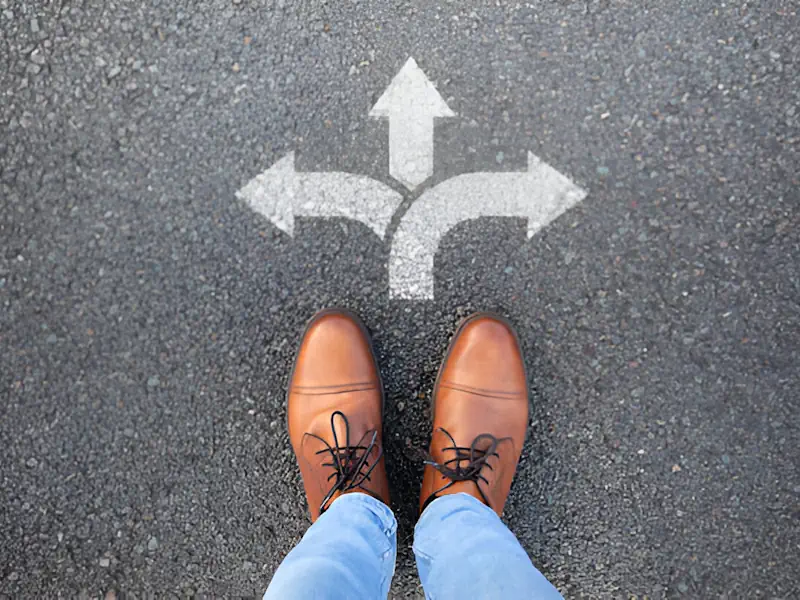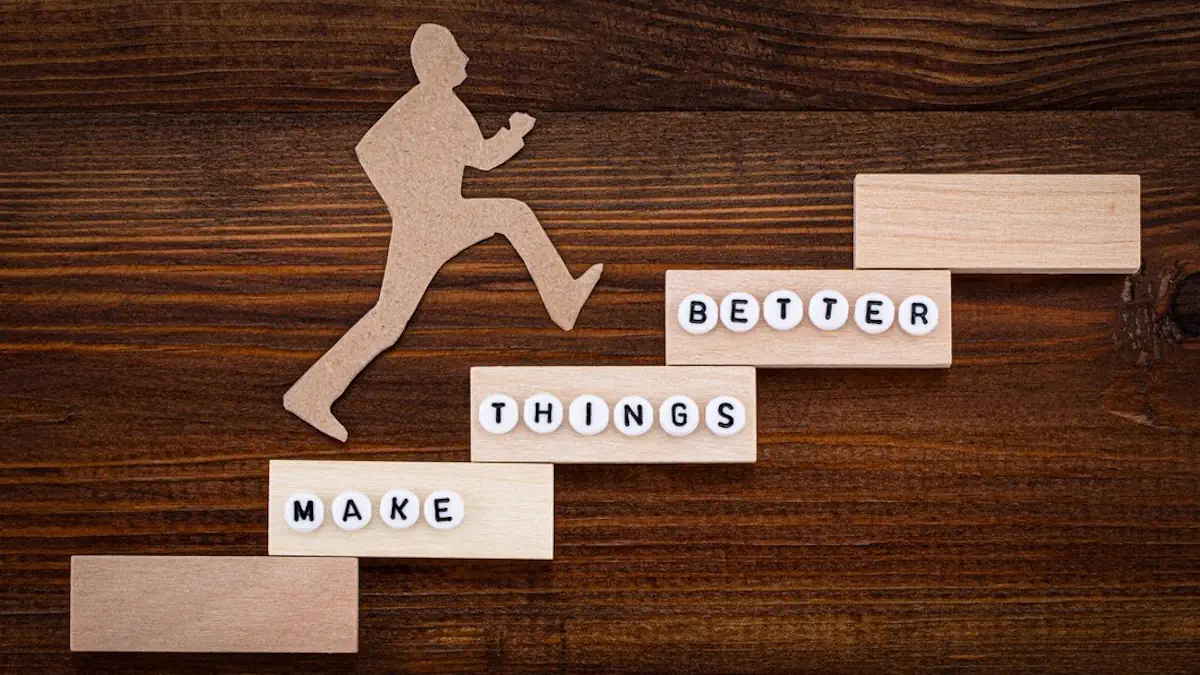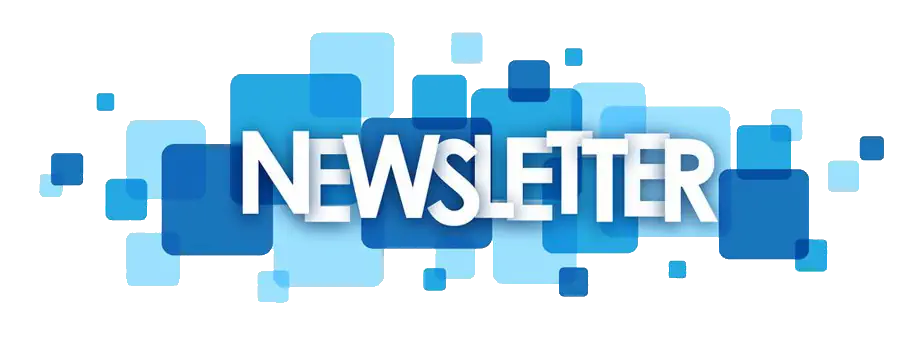Table of contents
Improvement of self nowadays has surely become a spiral upward. The whole world, especially the United States, is into developing better self-awareness, resilience, and emotional well-being. The urge and need to become the best version of oneself seems to have taken over the personal development or transformation drive going strong within today’s society.
Whether you are striving to find a better balance, enjoy career opportunities, or build stronger relationships, there is something in personal development for everyone. Let’s dive into how you can unlock your best self, and why personal development is the ultimate tool for a fulfilling, meaningful life.
What is Personal Development?
At its most basic, personal development is the intentional action and growth of an individual as a person. This describes one’s self-awareness of their strengths, weaknesses, and further desired adjustments necessary to effect change over time. Personal development is not something for which there exists a ‘one-size-fits-all’ approach; rather, it is a process in which many areas can be targeted in emotional growth, career growth, mental health, and so on.
Setting objectives, learning new abilities, and forming habits that support your values and ambitions are common steps in this process. The ultimate goal of personal growth is to become a more resilient, flexible, and contented individual.
The Importance of Personal Development
Personal development serves as a foundational tool for achieving lasting happiness and success. Here’s why it’s essential:
- Enhanced Self-Awareness: Understanding who you are and why you act the way you do helps you make better choices and build a life that aligns with your values.
- Improved Mental Health: Developing healthy coping strategies and emotional resilience contributes significantly to emotional well-being.
- Better Relationships: When you grow personally, you communicate more effectively, empathize with others, and build stronger relationships.
- Career Advancement: Many personal development skills, like time management and leadership, can significantly impact your professional success.
- Increased Confidence: As you achieve your goals, your confidence grows, allowing you to approach challenges with a positive mindset.
How to Begin Your Personal Transformation Journey
Starting your personal transformation journey may seem daunting, but breaking it down into actionable steps can make it manageable and enjoyable.
Self-Assessment: Know Thyself
Understanding yourself is the foundation of personal development. Ask yourself these questions:
- What are my core values?
- What are my strengths and weaknesses?
- What do I want to achieve?
Engage in self-reflection through journaling or by asking for feedback from close friends or family members. Self-assessment tools, like personality tests or career assessments, can also provide insights into your characteristics and potential areas for growth.
Set Clear, Measurable Goals
Goals give your personal development journey direction. Aim for specific, measurable, achievable, relevant, and time-bound SMART goals. For example:
- “I will read one book on personal growth per month to enhance my knowledge and awareness.”
- “I’ll practice mindfulness meditation daily to manage stress better.”
By setting small, achievable goals, you can build momentum and keep your motivation high.
Cultivate Positive Habits
Your daily habits play a significant role in personal transformation. Focus on cultivating habits that align with your goals, such as:
- Morning Exercise: Boosts energy and reduces stress, setting a positive tone for the day.
- Daily Reflection: Spend five minutes reflecting on your day’s successes and areas for improvement.
- Mindfulness Practice: Mindfulness helps you become more present, calm, and focused.
Over time, these habits contribute to significant changes in your outlook and productivity.
Key Areas of Personal Development
Personal development encompasses a variety of areas, each contributing to your overall growth. Let’s explore the most impactful areas and strategies for improvement in each.
Emotional Intelligence
Emotional intelligence (EQ) is the ability to understand, manage, and respond to emotions effectively. High EQ is crucial for maintaining relationships and managing stress. To build emotional intelligence:
- Practice active listening to understand others’ perspectives.
- Identify and name your emotions, which can prevent impulsive reactions.
- Learn emotional regulation techniques, like deep breathing, to manage challenging feelings.
Mindset and Positive Thinking
A positive, growth-oriented mindset is essential for personal transformation. The growth mindset concept, popularized by psychologist Carol Dweck, suggests that people can develop skills and abilities with effort and practice. To foster a growth mindset:
- Embrace challenges as learning opportunities.
- Replace negative self-talk with affirmations like, “I am capable of overcoming obstacles.”
- View failures as feedback that helps you improve.
Health and Wellness
A healthy body is a foundation for a thriving mind. Physical wellness directly affects your mental clarity, energy levels, and resilience. Tips for improving health and wellness include:
- Balanced Diet: Nutrient-rich foods can boost energy and cognitive performance.
- Exercise: Regular physical activity reduces stress and increases focus.
- Adequate Sleep: Aim for 7-9 hours of quality sleep to recharge and improve mental resilience.
Skills Development
Whether it’s career skills, like leadership and communication, or personal skills, like time management, developing relevant skills can enhance all areas of your life. To develop skills effectively:
- Take courses or attend workshops in areas that interest you.
- Read books and consume media that offer insights into skill-building.
- Practice regularly to integrate these skills into your routine.
Financial Literacy
Financial literacy is an often overlooked but crucial aspect of personal development. Managing money wisely can reduce stress and support other personal development goals. To improve financial literacy:
- Learn budgeting basics and create a monthly spending plan.
- Focus on saving and investing for the future.
- Educate yourself on financial topics relevant to your goals, like retirement planning or debt management.
Boost Your Happiness: Mastering Communication for Better Bonds
Overcoming Common Personal Development Challenges
Transforming yourself isn’t without challenges, but with preparation and determination, you can overcome them.
Dealing with Self-Doubt
Self-doubt often creeps in when you’re trying something new. Combat it by:
- Recognizing your achievements and celebrating small wins.
- Reminding yourself that setbacks are a natural part of growth.
- Seeking support from mentors or supportive friends who believe in you.
Staying Consistent
Consistency is the backbone of personal development, but it can be difficult to maintain. Keep yourself on track by:
- Setting reminders for daily habits, like journaling or meditation.
- Tracking your progress to stay motivated.
- Focusing on the long-term benefits of sticking with your goals.
Time Management
Life can be busy, and finding time for personal growth isn’t always easy. To manage your time effectively:
- Prioritize tasks that align with your goals.
- Use tools like planners or productivity apps.
- Delegate or eliminate tasks that don’t serve your long-term objectives.

Practical Tips to Enhance Personal Transformation
Achieving personal transformation is more accessible than you might think. Here are some practical tips to maximize your progress.
Daily Journaling
Journaling is a powerful tool for tracking growth and cultivating self-awareness. Write about:
- What you’re grateful for, to boost positivity.
- Lessons learned each day, which reinforces growth.
- Goals and dreams, to clarify your direction.
Setting Boundaries
Boundaries protect your time, energy, and mental health. Practice setting boundaries by:
- Politely declining requests that don’t align with your goals.
- Communicating clearly and assertively with others.
- Respecting your own limits and taking time to recharge.
Mindfulness and Meditation
Mindfulness and meditation improve focus, emotional resilience, and stress management. To get started:
- Try a short, guided meditation app like Headspace or Calm.
- Practice breathing exercises throughout the day.
- Engage in mindfulness activities, like yoga or nature walks.
Benefits of Personal Development for Long-Term Success
Investing in personal development brings enduring benefits that extend into every aspect of your life.
Greater Resilience
Personal development cultivates resilience, helping you to cope with life’s inevitable ups and downs. Resilient people recover from setbacks more quickly, approach challenges with positivity, and learn from adversity.
Lasting Happiness
When you grow in self-awareness and purpose, you find lasting contentment that isn’t solely based on external achievements. As a result, you experience deeper, more authentic happiness.
Career Growth
Developing personal skills—like communication, emotional intelligence, and leadership—boosts your professional potential. The more you invest in your development, the more opportunities will arise, leading to a fulfilling career.
Enhanced Relationships
Better self-awareness and emotional intelligence allow you to connect with others on a more profound level. You’ll find it easier to communicate, resolve conflicts, and build strong, lasting relationships.
Embracing Personal Transformation
Remember, personal development is a lifelong journey. Celebrate your progress, stay patient, and embrace every step, even when it feels challenging. Every small action you take, whether it’s reading a book, journaling, or meditating, brings you closer to unlocking your best self.
FAQs
How long does personal development take?
- Personal development is a lifelong journey. While some changes can be seen within a few weeks, significant transformation may take years.
What is the best personal development habit?
- The most impactful habit is consistency. Whether it’s daily journaling, exercise, or meditation, consistent practice leads to long-term benefits.
Can anyone benefit from personal development?
- Absolutely. Personal development is beneficial for people of all ages and backgrounds.
How can I stay motivated on my personal development journey?
- Set achievable goals, track progress, and celebrate small wins. Surround yourself with supportive people and maintain a growth mindset.
Does personal development help with mental health?
- Yes, personal development can enhance mental health by fostering self-awareness, emotional resilience, and healthy habits.
What’s the difference between personal development and self-help?
- While often used interchangeably, personal development is a broader concept focused on growth in all areas of life, while self-help usually targets specific issues or challenges.
Conclusion
The path to self-discovery, growth, and fulfillment is empowering and is known as personal development. You can discover your greatest self and alter your life by accepting change, forming constructive routines, and confronting obstacles head-on. With each step you take, no matter how tiny, you go closer to being a better, more fulfilled version of yourself.













2 thoughts on “Unlock Your Best Self: The Ultimate Guide to Personal Transformation”